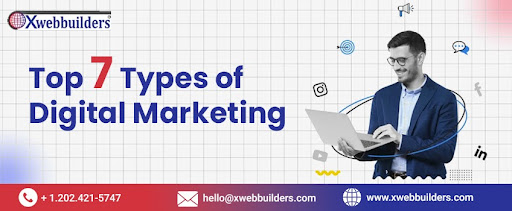
September 01, 2025

The evolution of technology is on the rise and the internet has become a hub of growth every day. Given the wide number of digital communication channels and media available, organizations must apply digital marketing services to reach the desired audience.
Search Engine Optimization is optimizing content and a site to be accessible by a search engine such as Google or Bing. The more traffic it will attract from search engine users, the better its position will be for relevant searches. Since SEO revolves around the site, it becomes necessary to know how search algorithms and bots crawl the site and index it. Key elements include:
- On-page SEO is used to optimize every webpage using the right title, header, content, file name, sitemap, etc.
- Off-page SEO is the process of creating other external signals to enhance a site's relevance and authority for certain keywords from other websites.
- Technical SEO: It's a process of going through a site and reviewing its technical aspects like speed, mobile compatibility, structured data, etc., and ensuring that to optimize a site for technical SEO.
SEO can be among the most cost-effective and effective approaches to digital marketing. Thus, it becomes an excellent foundation for constant and organic development.
PPC advertising is where someone wants their ad displayed in a search engine or social networking site, Google AdWords, Facebook ads, etc. A clear feature of PPC is that it is much more certain than SEO on the organic page since it guarantees visibility for the duration of the advertisement as the users pay when they click on it. Key points include:
- Highly localized and specific targeting – PPC can target the exact keyword, location, demographic data, interests, etc.
- Real-time visitor tracking – Gain an instant view of site activity and the number of visitors completing actions such as signing up for an email list, downloading something, or purchasing.
- Cost control – Establish daily budgets and achieve the maximum click volume for a given price per bid for keywords and their quality scores.
Since it provides direct traffic and conversions, PPC is responsible for lead generation and sales for most digital marketers.
There is a list of social platforms, such as Facebook, Instagram, Twitter, and LinkedIn, with billions of active users. This makes them the best outlets to advertise brands out there with an agenda of getting exposure to their websites. Therefore, Social media marketing is primarily about creating brand accounts, content, and interactions that provide an audience and a fan base with which brands can interact and transact. Core social strategies are:
- Social media advertising – As with PPC, social platforms provide precise advertising tools to target particular users.
- Organic content marketing – Generating and sharing quality content can help brands gain followers, shares, engagement, and site traffic.
- Influencer marketing – Collaboration with specific influencers with high audience engagement levels can help increase branded content's visibility.
As social apps dominate consumer attention, businesses must learn different social marketing strategies for achieving conversion objectives.
Email marketing means companies can convey messages to clients through the content of the emails and special campaigns delivered straight to the mailbox. This email newsletter is often where relevant and useful content is shared to foster loyalty and trust. Other email tactics include:
- Promotional emails - Send emails to subscribers with special offers or products that may interest them based on previous purchase behavior online.
- Website retargeting – Advertise to those visitors who abandoned the website before purchasing due to leaving a product in an online shopping cart.
- Autoresponder sequences – A set of emails designed to welcome new subscribers and lead them through processes involving the brand.
Since most consumers access their emails daily, incorporating a robust email system encourages repeat business. It also makes it easier to communicate to customer and prospect segments that have given consent to receive content from the brand.
It is the practice of developing and sharing content, such as articles, e-books, videos, etc., to capture and build the audience of buyers. Branded content by a Digital Marketing Agency does not directly promote products to potential customers but provides information on industry issues or universal problems. Benefits include:
- Gain trust and create a positive perception in readers' minds by solving problems.
- Blogs, videos, podcasts, and other media-rich content to capture the attention of the visitors.
- If optimized as expected, long-tail content earns organic search traffic for months or years after its creation.
Web content helps brands build positive associations with the audiences at the beginning of the funnel by building awareness, trust, and recall.
Affiliate marketing by an individual or a Digital Marketing Company also operates by enlisting the help of external partner sites and influencers that can sell goods and receive a commission percentage. Affiliates generate a lot of traffic and sales because the visitor already has a level of trust in the affiliate site. Three proven approaches are:
- Affiliate marketing – Reward other small specialized websites and blogs for sending visitors through word-of-mouth.
- Sponsored content - Partner with popular accounts to make sponsored posts promoting products to thousands of followers.
- Affiliate marketplaces – Post products for affiliate search in specific CPA affiliate marketplaces used by thousands of marketers.
Affiliate marketing significantly increases product exposure by engaging third-party content sites and building up affiliations with influencers.
Webinars are online, live events that focus on an educational or training topic related to the interests of clients. In addition to thought leadership, webinars help brands gather many leads' contact details, such as email addresses, via registration forms. Additional advantages are:
- Incorporating live elements such as polls, surveys, Q&A sessions, and similar is an added advantage of the interactive format.
- Replay potential keeps content relevant for future use to continue capturing leads more conveniently.
- In-depth information about prospects is collected through elaborate sign-up processes.
From lead nurturing to upselling existing customers, branded webinars tactically align with business development objectives and opportunities.
This encompasses the most basic types of digital marketing widespread in the modern world of internet customer outreach and conversion. So, what's next in store? As the world advances more in technology and the behavior of consumers, more advanced promotion strategies incorporate automation, artificial intelligence, and omnichannel experiences.
However, if those mentioned seven digital tactics are integrated meaningfully for now, it will enable companies to earn profitable customer acquisition and retention in the Internet age. Every digital channel in this process aims to reach as many audience members as possible at various stages of the process and move them closer to being a delighted, lifelong customer. For more information or to avail services of our best Digital Marketing Company in Ashburn USA, visit Xwebbuilders.com.